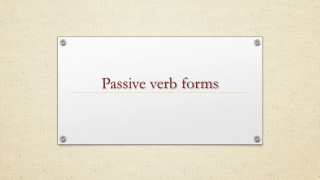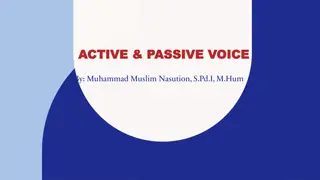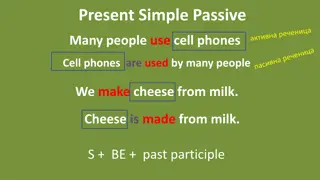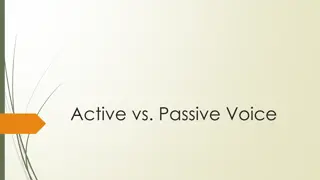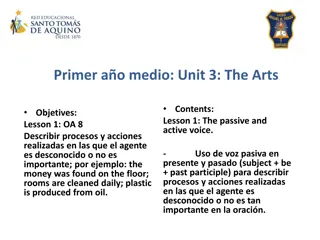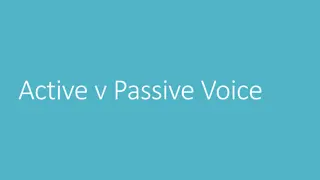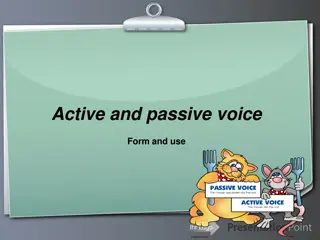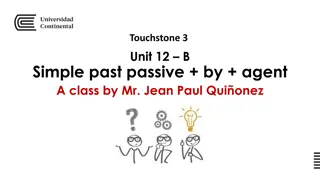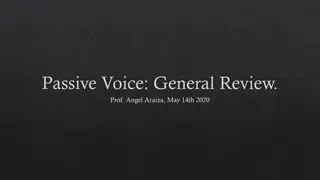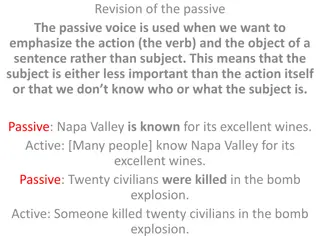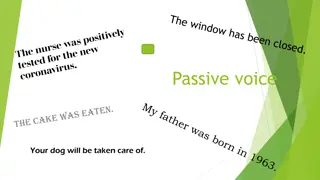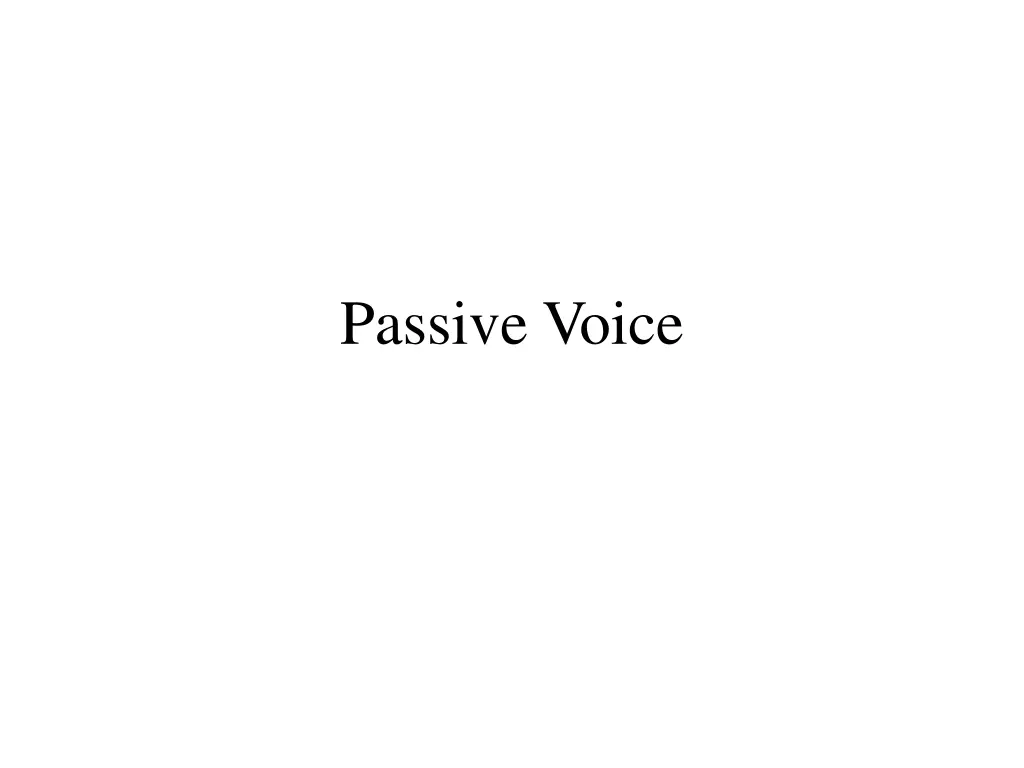
Understanding Passive Voice in English
Explore the concept of passive voice in English grammar, where the focus is on the action rather than the doer. Learn how to rewrite active sentences into passive, maintain verb tenses, and use 'am/is/are' or 'was/were' in present and past simple forms. Discover why passive voice is used and how it can enhance your writing skills.
Download Presentation

Please find below an Image/Link to download the presentation.
The content on the website is provided AS IS for your information and personal use only. It may not be sold, licensed, or shared on other websites without obtaining consent from the author. If you encounter any issues during the download, it is possible that the publisher has removed the file from their server.
You are allowed to download the files provided on this website for personal or commercial use, subject to the condition that they are used lawfully. All files are the property of their respective owners.
The content on the website is provided AS IS for your information and personal use only. It may not be sold, licensed, or shared on other websites without obtaining consent from the author.
E N D
Presentation Transcript
it s used when the focus is on the action it s not important who or what is performing the action, but the action itself is important The streets are cleaned. Books are written. House is built.
rewriting active sentences in passive: object (active) subject (passive) A: Somebody cleans this room every day. P: This room is cleaned every day. SUBJECT OBJECT
the verb BE has to be in the same tense as in active sentence A: Someone stole my sister s bike yesterday. P: My sister s bike was stolen yesterday. stole past simple => BE = was/were to show who did the action, we use BY This house was built by my grandfather.
Passive Voice present simple form: am/is/are (not)+ past participle The grandma is always invited. Many accidents are caused by dangerous driving. I m not invited to parties. How many people are injured in car accidents every year?
Passive Voice past simple form: was/were (not) + past participle This room was cleaned. During the night we were woken up by a loud explosion. When was the castle built? This house wasn t damaged in the storm.

